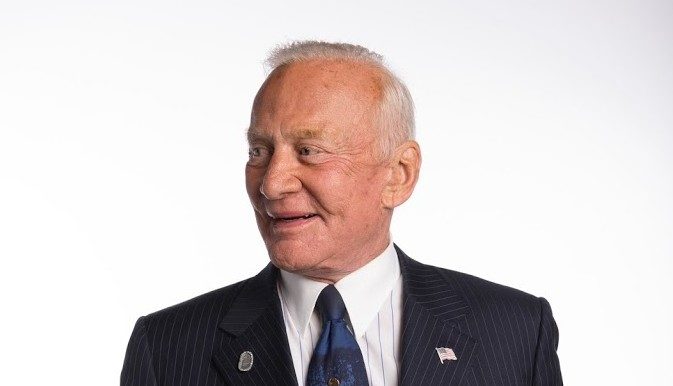
CIW Audience Members Hear the Story Behind Authors’ Greatest Works
 |
| Blind author Ryan Knighton tells the stories behind his stories to CIW 2013 attendees. |
“Blindness didn’t scare me, boredom scared the hell out of me,” said legally-blind author Ryan Knighton, one of the five stellar writers who took the stage during Chicago Ideas Week’s Storytellers: The Written Word Talk on Tuesday evening.
For almost two hours attendees joined the world’s most exclusive book club as incredible authors shared the stories behind their most powerful works and their creative process. The Talk was just one of a week’s worth of programming promoting innovation, creativity and connection at the third annual Chicago Ideas Week.
“This afternoon we are joined by some of the most talented storytellers of all time,” said the show’s host and CIW board member, Sonya Jackson. “They entertain us, they teach us and inspire us with their words.”
Knightonkicked off the session sharing how writing is his tool to see the world. He started going blind when he was 18. Five years later, his eyesight was completely gone.
Rather than feel defeated, he used his blindness to empower his writing. And not just any writing – travel writing. He said he wanted the ultimate challenge.
“I write so I can see the world, word by word,” Knighton said.
In Nothing To See Here, he’s capturing the essence of his travels in book form. One of his most memorable trips was to Cairo, Egypt, where the blind citizens are forced to feel their way through the city of uneven roads and treacherous terrain, because seeing-eye-dogs are considered dirty and canes a sign of weakness.
Knighton said he was treated well there, with complete strangers helping him along his way, some even would carry him into his hotel at the end of the day to make sure he got back safely.
While Knighton used his words to see the world, another author’s passion for writing took him on a 12-year pursuit of tasting the best cheese in the world.
 |
| Author Michael Paterniti take the audience on his journey to Spain. |
Michael Paterniti, author of the nonfiction Telling Room: A Tale of Love, Betrayal, Revenge and the World’s Greatest Piece of Cheese, recounted his more than 20-year love affair with a type of “sublime” cheese that took him on a wild journey through Spain where he met the cheese’s creator, Ambrosio Molinos de la Hera. The story twists and turns and eventually morphs into a murder plot made by Ambrosio after his friend betrayed him and stole the entire cheese company.
“Every time he repeated the story, he was killing Julienne in his mind,” Paterniti said. “It made me think of the power of a story—how good and evil is defined.”
While he was feasting on nacho cheese instead of gourmet cheese, speaker Mike Walsh journeyed across all 50 states to complete a bowling-themed travel memoir inspired by his father, who passed away when Walsh was 25.
Bowling Across Americapaid homage to his dad, who had always wanted to play handball in every state—and while Walsh didn’t have the knack for handball, he knew bowling would be a perfect substitute.
Walsh broke down the necessary ingredients for a solid memoir—dramatic tension, life lessons, the hero’s journey and a traumatic event. And though he received much harsh criticism, he said he could not have been happier to complete the book.
“It’s not destined to become a major motion picture…you won’t hear me speaking about it on NPR or see it grace the pages of GQ,” Walsh said. “But it’s very special to finish a book and hold it in your hands.”
Though countrywide and worldwide traveling often nourish great works of writing, some authors look within their own community for stimulation. New York Times best-selling author Ann Leary said she uses the secrets of her hometown to inspire works of fiction that are much closer to the truth than anything else. Leary, who serves as a volunteer EMT in her small Wisconsin hometown, is a connoisseur of secrets and has been known to expose some of her own in her writings.
“Don’t over share with me because I will definitely over share with others,” Leary said. “I do believe that truth is stranger than fiction… Being an EMT is the best way to find out what’s going on in my small town…I don’t get paid in money but I get paid in information…I love to get the local lore.”
 |
| Author Terry McMillan said she tries to bring hope to her readers. |
Closing author Terry McMillan said she takes a different approach – unapologetically admitting that she lies to tell people’s truths.
“I do lie for a living,” said McMillan, the New York Times best-selling author of Waiting to Exhale and How Stella Got Her Groove Back. “[But] I’m a very bad liar in real life.”
Her latest fiction, Who Asked You?, tells the story of struggle, acceptance and hope of a black Los Angeles family through three sisters with children entering adulthood. The sisters each have their fair share of problems—Arlene, a psychologist, struggles with over-protecting her closeted gay son, and Venetia spoils her kids rotten.
The main character, Betty Jean, is a middle-aged room service worker who has a husband suffering from Alzheimer’s and a drug-addicted daughter. While McMillan herself has never experienced any of this, her story has deep impact and realness because of her dedication to research. She said she Googled videos of people smoking crack in order to properly convey the addiction of BJ’s drug-addicted daughter, Trinetta.
“I usually start with people that I don’t understand or don’t like…and I give them bad personality traits and problems,” McMillan. “I try to write about real characters who have real problems and they try to resolve them in a realistic way.”
McMillan said she writes her stories to spread hope and, ultimately, to find out what makes people tick.
“Writing for me is like praying on paper,” McMillan said. “I get a chance for characters to live out the problems I give them, but I also try to put opportunities out in front of them so that they are tested.”
Attendees soaked in the speakers’ talks like a good book.
“All the speakers talked about that blurred place in between making a story and drawing from reality,” said Lindsay Bosch, a program officer at the American Library Association. “I enjoyed seeing the differences of writing nonfiction and fiction, but also how they overlap one another.”
Cheryle Robinson Jackson, a CIW member and vice president of government affairs and corporate development at AAR Corp., said she was thrilled to have seen McMillan, one of her favorite authors.
“It was the first time I’ve ever seen Terry McMillan speak live,” Jackson said. “She was great. I liked the quirkiness of all of the authors—they each had such a distinct character about them.”
_________________________________
Written by: Sophia Coleman
Photography by: Sophia Coleman
_________________________________
Written by: Sophia Coleman
Photography by: Sophia Coleman




